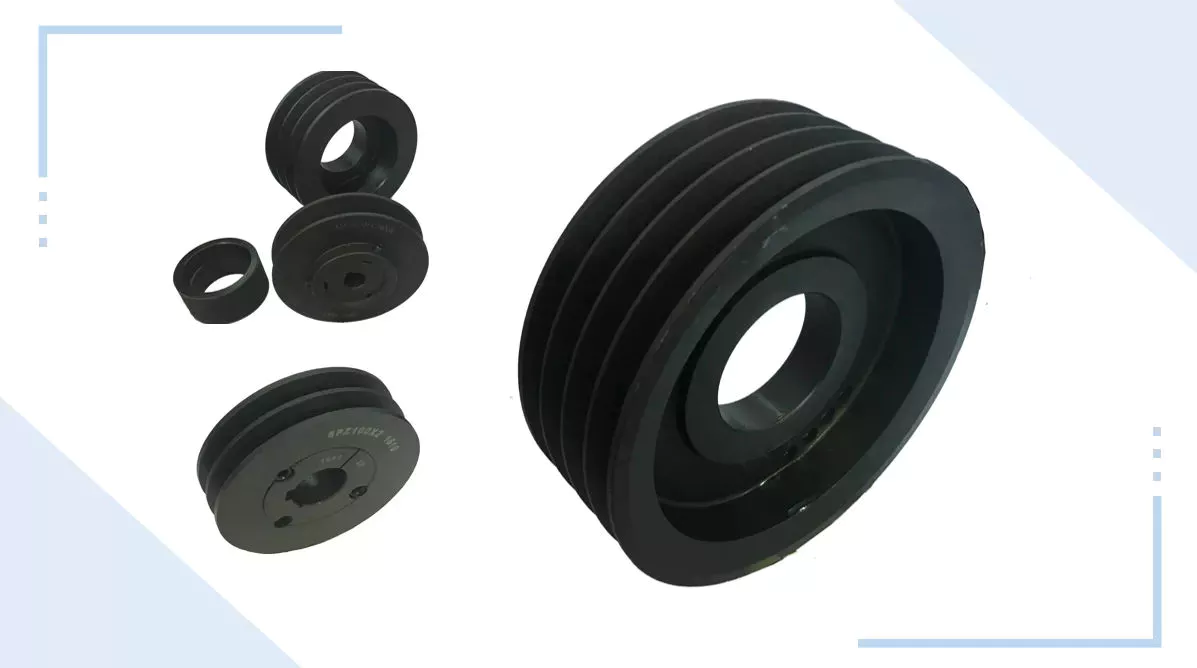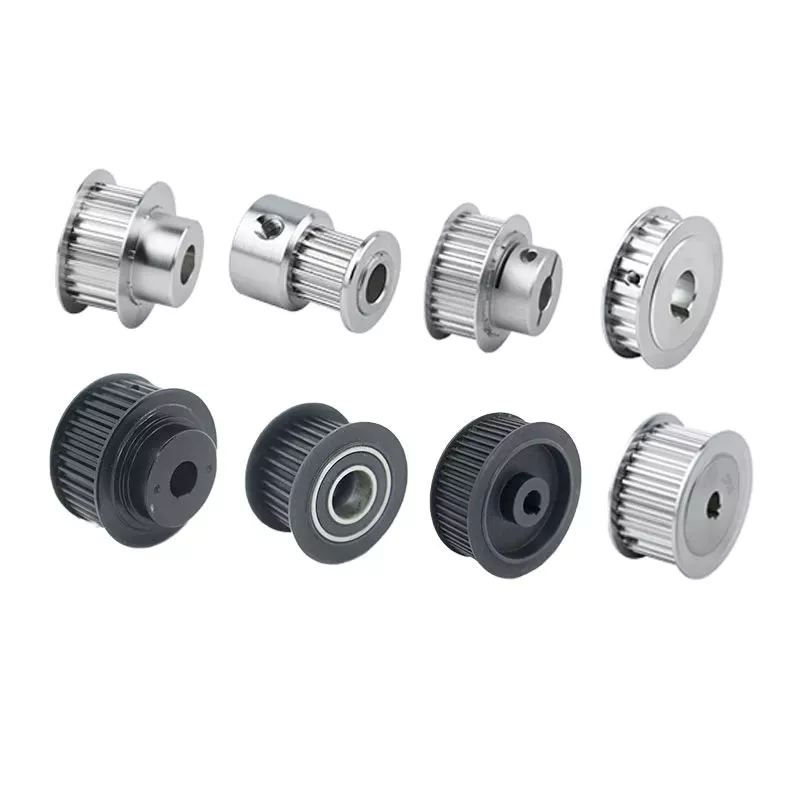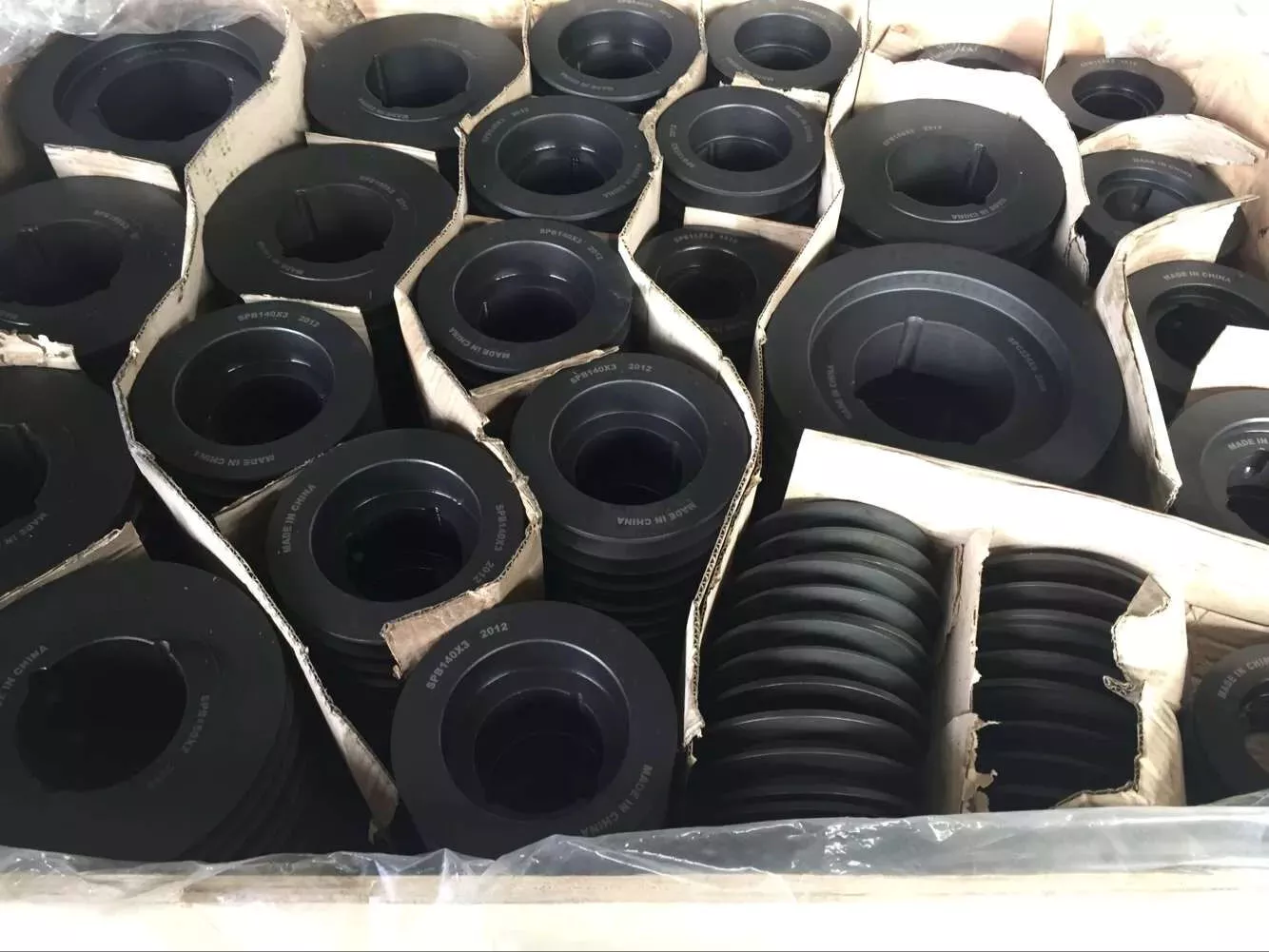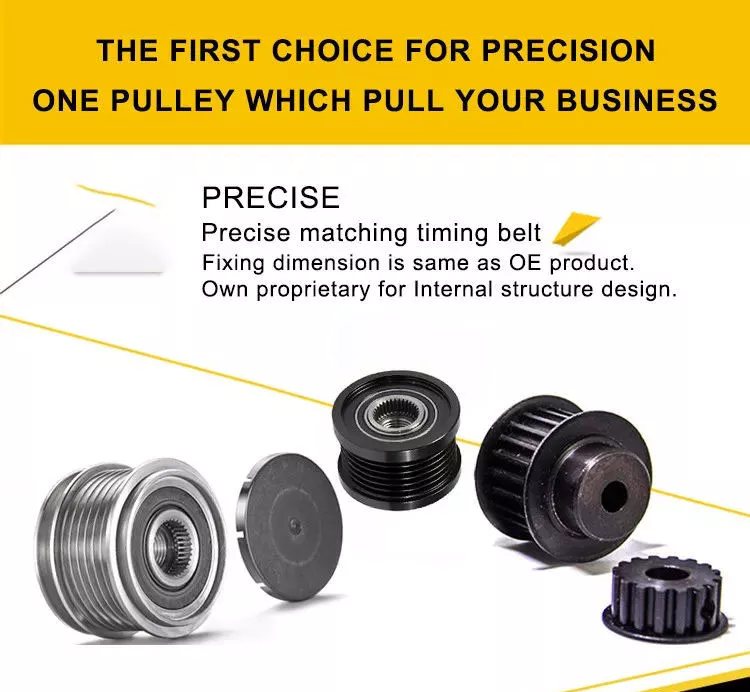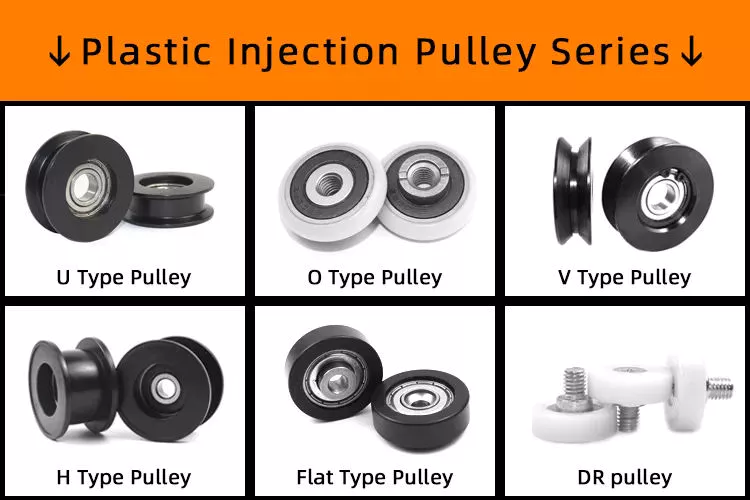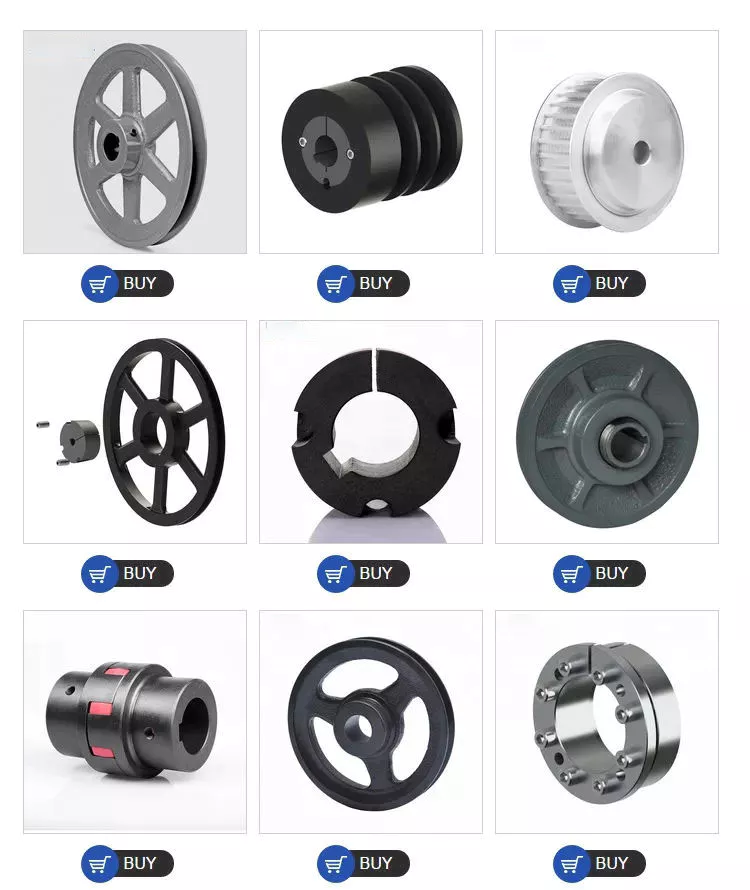Product Description
Belt Conveyor Vertical Drive Tail Pulley Drum with Factory Price
YILUN conveyor pulley is manufactured as per customer requirement, with main design under national standard, quality inspection focusing on shaft core, welded joint, rubber material and hardness, dynamic balance, and so on for longer product lifetime.
Our products are widely used in thermal power generation, harbors, cement plants, metallurgy and as well as light-duty conveying devices for industries.
Product Parameters
| Application |
recycling industry
power industry
parcel transport industry
petro industry
coal mining industry
cement concrete industry
machining industry |
| Pipe/Tube/Shell |
1)Material: Q235 Steel
2)Diameter:219mm-3000mm
3)Length:500mm-5000mm, depending on the belt width of the conveyor |
| Shaft/Axis |
Material:#45 Steel |
| Bearing |
Big roving crack, deep groove ball with double sealing |
| Welding |
Pipe and bearing housing with automatic welding |
| Surface |
Smooth steel color surface, rubber lagging surface |
| Color |
Red, green, blue, or as required |
| Working life |
≥30000 hours |
| Standard |
GB,ISO,DIN,CEMA,JIS |
| Special |
can be customized according to the customer or designed for the customer |
| Supply Ability |
50 pcs per day |
| Certificate |
ISO9001:2008, BV, SGS |
Quality inspection
Our Advantages
Yilun Conveyor Drum Pulley Advantage:
1. Dust-proof & Water-proof
The contact-sealing is adopted, which enjoys more superior dustproof and waterproof
2. Low Vibration and Noise
Static balance test to ensure G40 accuracy level.
3. Strong Force of Friction
The material for the shaft is forged shaft of 40Cr instead of #45 round steel,which improves mechanical property
4. Easy Installation & Simple Maintenance
The bearing block and taper-lock are ground, which ensures the installation precision
5. Min 50000 hours of service life
Product Features
| Conveyor Pulley Test |
1. All butt welds shall be full Penetration
2. All welds to be full seal welds to prevent rust
3. Shell seam welds are submerged arc (SAW)
4. Includes stress relieving of shell prior to machining
5. Ultrasonic testing of all shafts
6. Drillings for Temperature probe/vibration analysis device
7. Remove all butts and sharp edges |
| Conveyor Pulley Shaft Selection |
The major cause of conveyor pulley failure is excessive shaft deflection. The Conveyor Pulleys – ZheJiang HSCD Engineering department can perform Stress Analysis and Finite Element Analysis to maximize your conveyor pulley performance.
|
| Conveyor Pulley Shell Material |
Q345B Carbon Steel
GR350 Carbon Steel
ANSI 4140 Alloy Steel
ASTM A514B Stainless Steel |
| Bearing House |
NSK/ /HRB/LYC, as customer request. |
| Conveyor Pulley Lagging |
Plain rubber lagging, Herringbone, and CZPT grooves are all available
. Hot Vulcanised Durometer
. Hardness 50-55-65 Shore A, M Grade
. Oil Resistant, Heat Resistant FRAS |
| Comprising |
•Drive pulley, Head pulley, and Tail Pulleys
•Take-Up Pulleys,
•Snub pulley & Bend Pulleys
•Self Cleaning Spiral CZPT pulley & Drum Pulleys |
| Significant advantages |
• The thick pulley shell absorbs more stress.
• The large crown angle provides superior belt tracking capabilities.
• True concentric machining provides:
• maximum contact with the belt,
• consistent belt content discharge,
• less deflection of shaft,
• less stress on the bearings |
Available
Conveyor Pulley Designs |
•Liveshaft or Deadshaft types.
•Flat or crowned shell.
•Taconite, labyrinth, or specialty seals.
•Oil or grease lubricated.
• Self-centering or low-pressure lock element designs. |
Packaging & Shipping
Iron Pallet Packing of Convey Pulley for shipping in 20ft or 40ft containers.
Customer visiting&Exhibitions
After Sales Service
We give our customers the greatest support in after-sale service.
1. Send the engineer to train how to install the conveyor face to face;
2. Any problems can be solved online in time;
3. Conveyor/Roller/Idler Parts are available in stock.
4. Strict Quality Control to keep the long lifetime.
What kinds of Conveyor Pulleys we can manufacture:
·Conveyor head pulley, Conveyor drive pulley, Conveyor bend pulley, Conveyor Tail Pulley
·Conveyor tension pulley, Conveyor snub Pulley, Conveyor CZPT Pulley, Conveyor take up Pulley, and so on
Company Profile
HangZhou CZPT Conveying Machinery Co., LTD was founded in 2005, It is located in the economic and development zone of Xihu (West Lake) Dis., HangZhou city, Shangdong Province. Our company is specialize in fixed conveyors, movable and going up and down conveyers with type TD75, DTII, and DTIIA. the roller and drum/pulley. Our company also gain some product patent.it also improves our brand “YILUN” and also implores new markets, such as Europe, Australia, South Africa, the Middle East, Africa, etc.
FAQ:
1. Q: Is your bearing type and brand usually used?
A: Large ball bearing type deep ball bearing with SRB, and according to customer’s requirements.
2. Q: How is your Payment Term?
A: T/T or L/C. Another payment term we can also discuss.
3. Q: Can you customize it?
A: We support customization according to your request.
4. Q: What’s the MOQ?
A: 3 pieces.
5. Q: What’s the production capacity of your conveyor pulley?
20 pcs/day.
6. Q: What’s your roller’s lifetime?
Our pulley has a long life with good performance and usually
makes sure 30000 to 50000 hours under the normal site and operation.
If you are interested in us, pls contact me ^ ^
What makes pulleys so important?
A pulley is a simple tool that makes it easy to lift or move heavy objects. There are many uses for this tool, but let’s take a look at their mechanical advantages. There are several types and many applications, along with their benefits and costs. So what makes them so important? Read on to find out! Below are some of the most common uses for pulleys. Let’s dive into them.
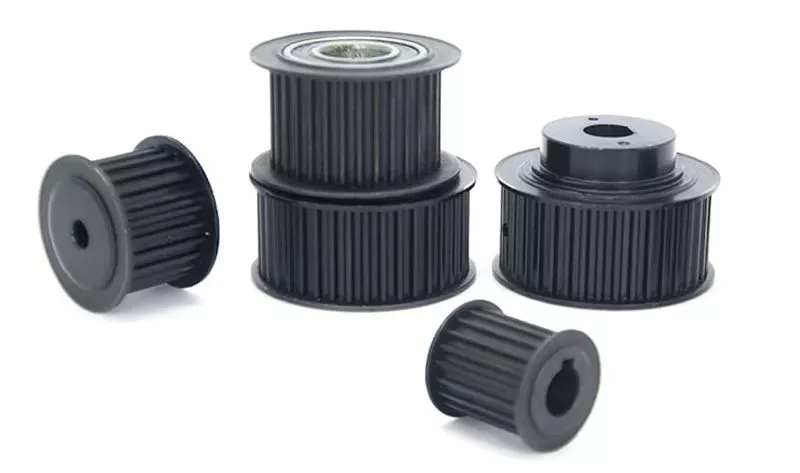
Mechanical advantage
If you’ve ever used rope and pulley systems, you’ve probably noticed their usefulness. A 3:1 mechanical advantage system is like a 300-pound load being moved 1 foot up by 3 feet of rope. Then you can imagine using the same rope to get into a small space. The same principle applies to limited spaces, and a simple mechanical advantage system is just what you need for this purpose.
Assuming frictionless bearings, a single movable pulley can have 2 mechanical advantages. It is attached to a heavy object and requires the pulling force exerted by the jack to lift the heavy object. However, when you use a compound pulley, the force exerted on the rope to lift the object changes direction. The 3 factors used to measure machine efficiency are force, distance, and relative motion.
The mechanical advantage of the pulley is that it reduces the effort required to lift weights. When the rope is attached to the 2 wheels, applying a force of 500 Newtons can lift a mass of 100 kg. This mechanical advantage is why 2 rings in a pulley are better than one. Therefore, using a pulley system will save you energy. You can also use branches instead of ropes and pulleys.
type
There are several different types of pulleys. They can be simple or complex, depending on how they are connected. Simple pulleys have a grooved wheel on 1 end and are attached to an axle. These pulleys are used to lift heavy objects. They are often found on sailboats, and you can even see them on construction sites. On the other hand, stationary pulleys are attached to stationary structures, such as flagpoles. Fixed pulleys can also be used to lift loads from trucks or trains. Pulleys are also commonly used in wells.
Fixed pulley systems use rollers or single wheels. These pulleys are usually made of nylon or wire rope. They are used in heavy duty applications. They are also used in electric motors. A “V” pulley requires a “V” belt to transmit power. Some of these pulleys have multiple “V” grooves to reduce the risk of power slipping. Once installed, fixed pulleys are suitable for many applications.
Simple pulleys are simple pulleys. It has a pulley mounted on an axle and a rope at 1 end. Rope can be used to pull objects, while plastic pulleys can carry lighter loads. There are 2 main types: heavy duty and simple pulley systems. In either case, their function is the same: they change the direction in which the seat belt is fastened. So when comparing the two, it’s easy to decide which 1 is best for you.
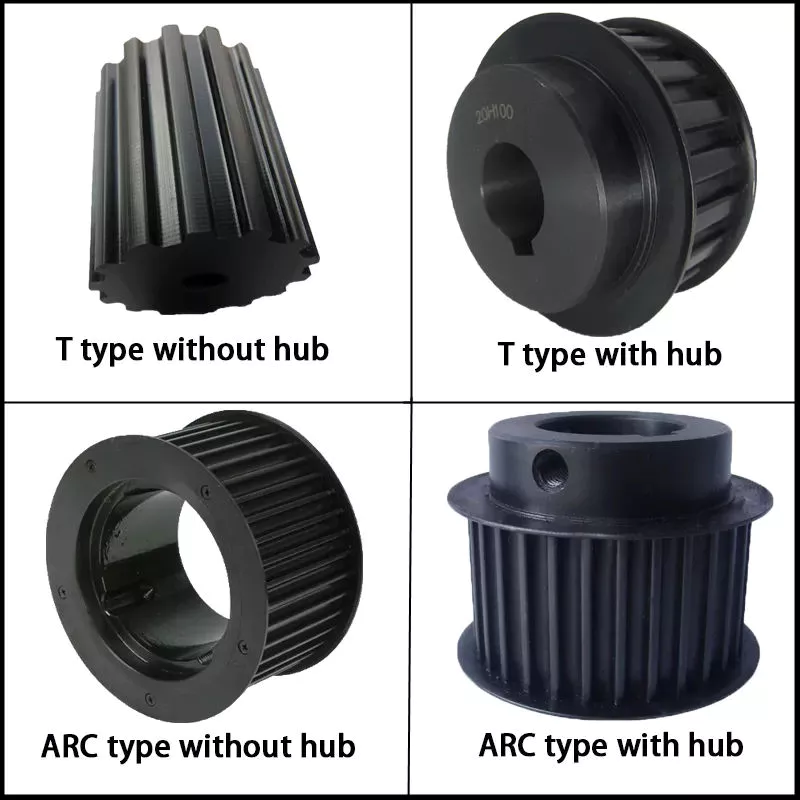
application
Pulley systems are simple machines used for a variety of industrial and mechanical tasks. Its design parameters and benefits have improved over the years, but they remain essential for many applications. Let’s take a look at some of the most common applications of pulleys. The applications for pulley systems are endless, from construction to mining, from transportation to packaging. Read on to learn more!
Pulley systems are often used to lift large objects, such as blocks, that might otherwise be too heavy to lift. It also makes the exploration process easier by helping people pull heavy objects into place. It is also widely used on sailing ships. Due to its low cost of use and no need for lubrication, it is a practical choice for many applications. It can be used to lift heavy objects and support long ropes.
The pulley system allows you to change the force required to move the object. For example, a two-wheel pulley system is especially useful for reducing the effort required to lift large objects. The mechanical advantage increases with the number of wheels in the system. In addition, the mechanical advantage of a two-wheel pulley system depends on the ratio of the load weight to the number of rope segments in the system.
cost
In most cases, an idler replacement will cost around $150, but the exact cost will depend on several factors, including the make and model of the car. The cost also depends on the type of idler you need and the cost of the OEM parts. Some pulleys are easy to replace at home, while others require specialized tools, such as pulley wrenches. The chart below shows the cost of popular vehicles. Prices are valid at the time of writing.
The diameter of the pulley is also important, this should be about 60% of the diameter of the active pulley. You can also purchase compensating pulleys at factory prices. Be sure to select the correct size before placing the pulley on the machine. Also, make sure you have enough space for the pulleys. Once you have the desired pulley size, you can determine the best type of belt to install.
While this method is the most common type of belt drive, there are other methods of spinning cup blanks directly from a flat metal disk. One such method is described in US Patent No. 5,500,31. US Patent No. 1,728,002 and shows a method of making a dynamically balanced V-groove pulley. Using a headstock die with sliders increases the cost of the pulley. In addition, different cup blanks require different molds.
lubricating
The lubrication of pulley bearings is relatively simple. The pulley itself rotates smoothly with little vibration. Bearing contact loads are relatively low, and well-lubricated pulleys operate near ambient temperatures. Here are some tips for properly lubricating pulley bearings. Make sure to lubricate the nozzle before applying grease.
Check grease, elastic ring, pulley bearing clearance once a year. If the elastic ring of the pulley is damaged or the roller bearing on the associated pulley is damaged, replace the pulley. Also, check the running noise of the pulleys to see if they are making noise. Check the bearing, damage to the elastic ring may indicate bearing failure or roller failure.
Proper lubrication is critical to the life of the rotating pinion. Avoid exposure to sunlight or water. Protects the pinion meshing area from hard impurities. Liaise with crane operators and lubricators during maintenance and lubrication operations. They should know how to avoid pitfalls in the lubrication process. In case of malfunction, please contact service personnel and take necessary measures.
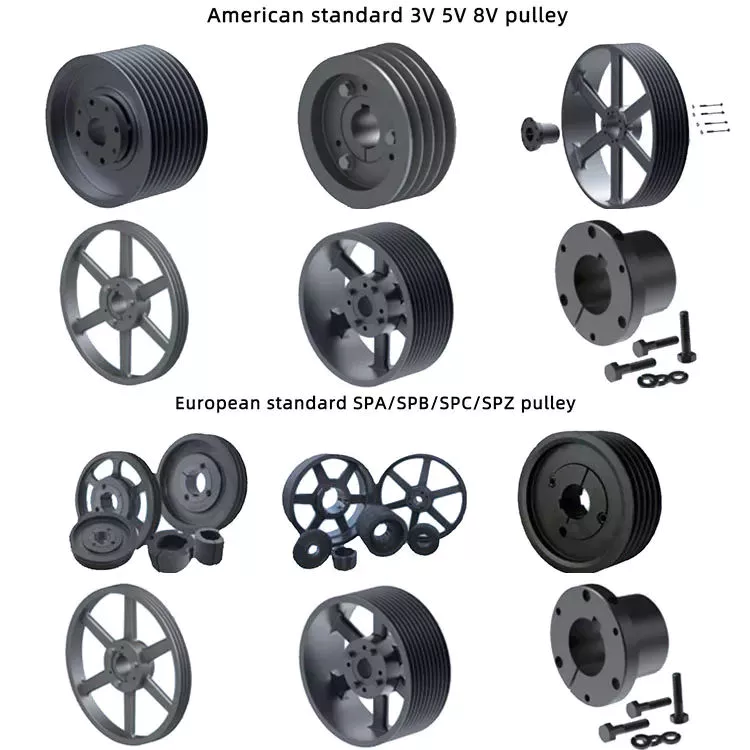
Compound Pulley System
A compound pulley system is used to lift heavy objects. These systems can use ropes or cords of different sizes. In general, the total weight of all ropes must be less than the weight of a single rope. The system can be used in large areas, but may not be suitable for smaller spaces. To learn more about compound pulleys, read on! Here are some helpful tips. 1. Understand the difference between single wheel and compound wheel
A composite pulley system consists of 3 components: a drive pulley, 1 or more driven pulleys, and 2 pulleys. The drive wheels are usually connected to shafts that are connected to the engine or transmission. The driven wheel is a separate unit mounted on the same shaft as the drive wheel. A compound pulley system helps lift heavy loads. These pulleys are the most common type of pulley system in use today.
Composite pulley systems are widely used on construction sites. They save energy by spreading the weight of heavy loads over multiple smaller loads. This means that the elevator does not have to use high-capacity lifting equipment. Additionally, the compound pulley system allows users to easily adjust power distribution to meet their individual needs. They can also use more than 2 ropes if necessary. This increases the range of motion of the lift arm.








